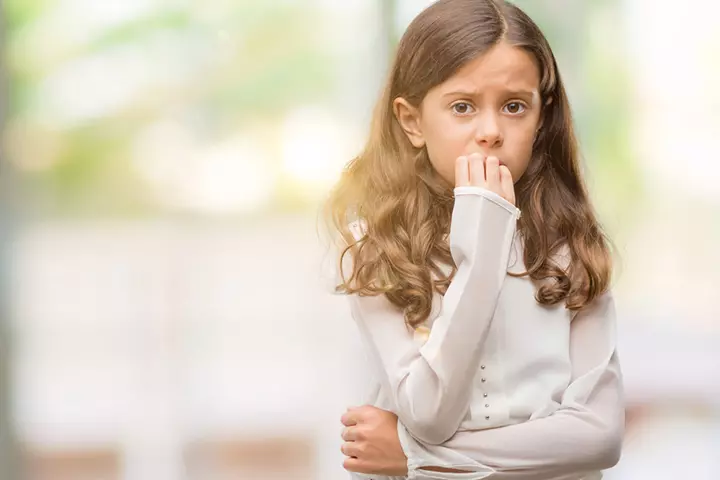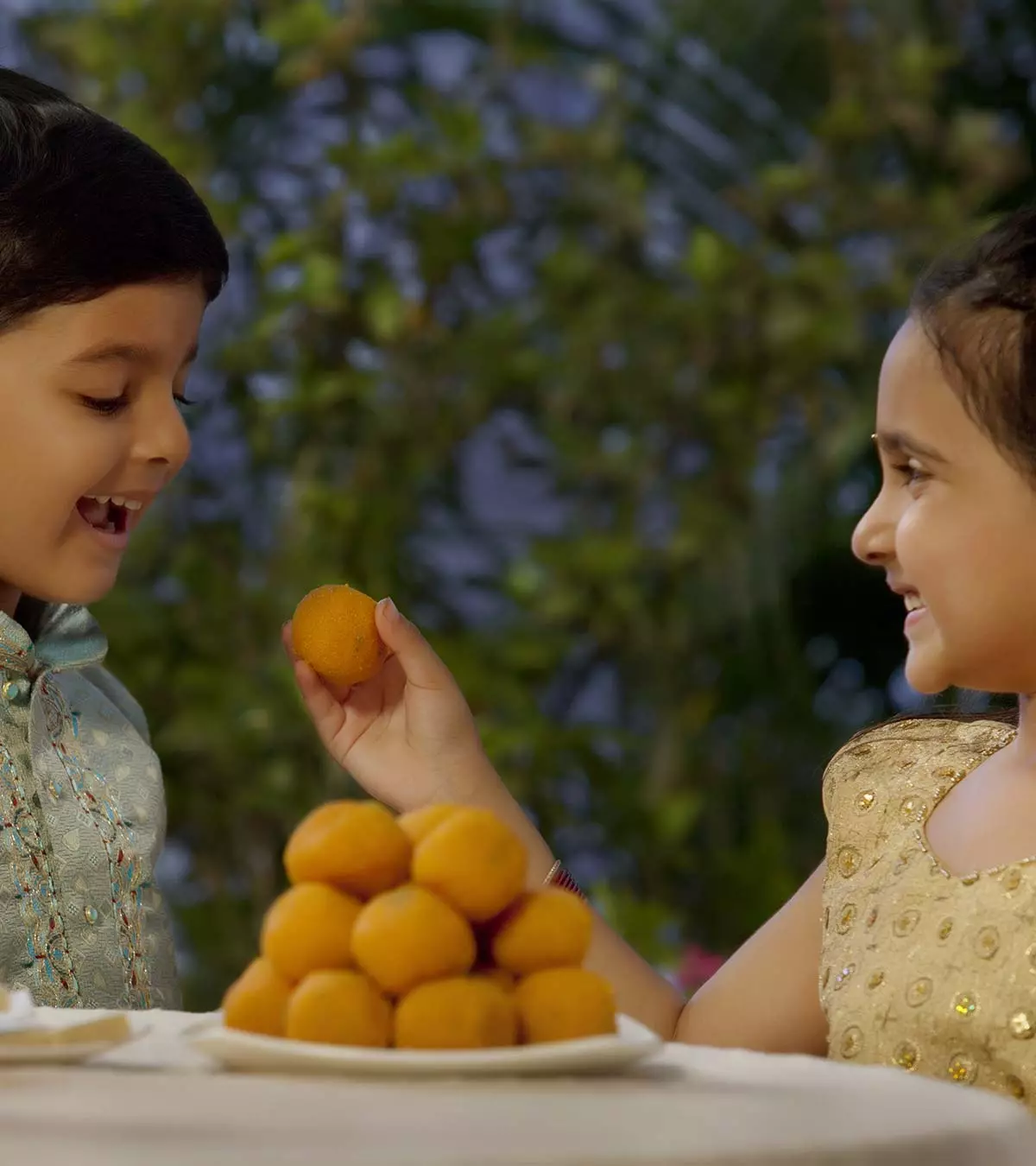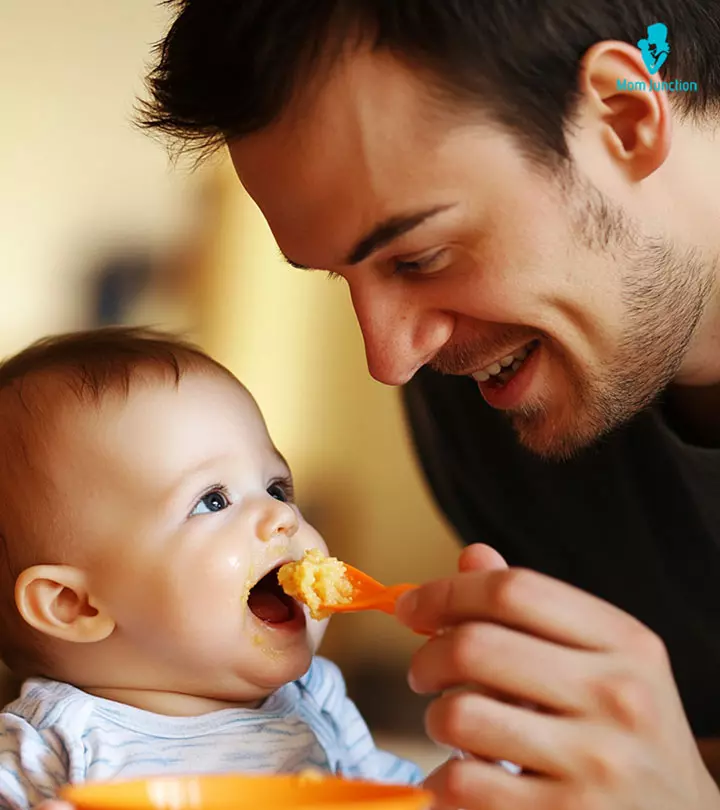
Image: Shutterstock

Coffee is one of the most widely consumed caffeinated beverages worldwide. Adults enjoy it because of its taste, pleasant aroma, and tendency to improve attentiveness. While for most adults, it is a vital part of their morning routine, coffee for kids is generally not advised.
The caffeine component in coffee is a major health concern for children,and excess intake of this stimulant might lead to adverse consequences. Many parents, especially those in societies where caffeinated drinks are prevalent, may wonder about the safety of coffee consumption for their children. Knowing the right age, safe quantities, and potential side effects of coffee for children is crucial.
Read this post to know about children’s coffee intake, including its side effects and health benefits, and make educated decisions.
Key Pointers
- Children, in general, must avoid caffeinated beverages.
- Children’s bodies are smaller, making them more susceptible to even modest quantities of caffeine, amplifying its effects.
- Caffeine intake may reduce their appetite, causing anxiety and dental cavities.
- If you wish to introduce coffee to kids, check the intake amount with your pediatrician.
Can Children Drink Coffee?

Image: Shutterstock
The American Academy of Pediatrics (AAP) recommends avoiding caffeinated beverage options, such as coffee, for children up to five years of age (1). Older children and teens should preferably avoid or at least limit coffee intake (2) (3).
The sweetened coffee drinks that children and adolescents usually like (as plain black coffee is bitter) have zero nutritional value. Besides, they are usually high in calories due to sugar and other additives, like whipped cream. Sustained consumption of sugary drinks may pose health risks, like childhood obesity.
 Did you know?
Did you know?How Much Caffeine Is Too Much For Children?
The US FDA has not set a limit on caffeine consumption in children (4). However, other experts recommend that adolescents (12 to 18 years) limit their caffeine consumption to 100mg per day (one cup of coffee) (5) (6).
Government regulators in Canada have the following recommended maximum caffeine intake values for children from ages four to 12 years (7).
| Age (years) | Maximum Recommended Intake (mg/day) |
|---|---|
| 4 to 6 | 45 |
| 7 to 9 | 62.5 |
| 10 to 12 | 85 |
Source: Government of Canada
Apart from coffee, some of the most commonly consumed caffeinated drinks among children and teens are hot chocolate, tea, energy drinks, and soda. These drinks should also be limited to keep the caffeine intake in check.
What Is The Right Age For Children To Drink Coffee?
There is no recommended right age for children to start consuming coffee. The US FDA recommends speaking to your child’s healthcare provider for advice regarding the consumption of caffeinated beverages (4). Younger children should avoid coffee. Older children and adolescents may have it in moderation if they are unwilling to replace it with safer and healthy drinks for kids. For parents who are concerned about the caffeine content in coffee, decaffeinated options are available and can be a safer choice for kids who want to enjoy the taste of coffee. It’s also essential to select beans that are fresh and of high quality to avoid any potential side effects.
How Does Caffeine Affect Children?
Caffeine is a stimulant that affects the central nervous system (CNS) of children, just like it does in adults.
However, children and teens can be sensitive to even small doses of caffeine due to their smaller body size (3).
Here are some general effects of caffeine that may occur both in adults and children, who regularly consume coffee (8).
- Increase in alertness and boost in energy due to the stimulation of CNS.
- Increase in urine output due to the diureticiA substance or medication used to expel excess water and salts through increased urine production effects of caffeine.
- Increase in the release of acid in the stomach leading to an upset stomach or acid refluxiReflux (backward flow) of stomach contents to the food pipe causes burning and discomfort in the chest .

Image: IStock
- Possible interference with calcium absorption.
- Increase in the blood pressure and heart rate.
Is Coffee Bad For Children?
Coffee is not harmful when consumed in limited quantities, but there is no recommended safe intake level for children. The body of a child is still growing, and it is not yet known how caffeine affects their CNS, circulatory system, and other organs. Children could also accidentally over-consume caffeinated beverages, such as coffee (5).
Coffee with flavor-enhancing additives such as high quantities of added sugar, cream, and other additives, such as chocolate chips, could contribute to high sugar consumption. It may pose a health risk in the long run.
Excess consumption of coffee can expose children and teens to a high dose of caffeine, causing the following side effects (4) (5) (9).
- Might decrease appetite: A review study indicated that consumption of caffeine about half an hour to four hours before a meal might suppress appetite (10). However, why and how it does is unclear and still under research.
- Can increase anxiety and nervousness: According to the American Psychological Association, high amounts of caffeine can stimulate a child’s immature neurological systems and cause symptoms, such as reduced attention capacity, increased anxiety, nervousness, and insomnia (11).

Image: Shutterstock
- Can cause dental cavities: Sweetened coffee is high in sugar, which could cause bacterial growth in the mouth. The bacteria produce acid, which erodes the tooth enamel, thus triggering tooth decay in children (12).
- Can cause bone loss: High caffeine intake is associated with reduced calcium bioavailability and increased calcium excretion contributing to bone loss (13) (14). Poor calcium levels during puberty disrupt the normal growth and development of the child.
- Can cause caffeine dependency: Teens are likely to develop caffeine dependency since they may notice that it helps them stay awake and focused (6). However, as tolerance to caffeine increases, the caffeine intake also increases. A sudden limitation or avoidance of caffeine develops a sense of withdrawal (15). Some of the common withdrawal symptoms are fatigue, reduced energy, nervousness, irritability, and recurrent headaches (16).

Image: IStock
Besides the above conditions, overconsumption of coffee may cause immediate effects, such as nausea, vomiting, and increase in blood pressure (6). Hence, its intake must be monitored.
 Research finds
Research findsAre There Any Health Benefits Of Drinking Coffee?
Regular consumption of unsweetened coffee in moderation is associated with improved heart health, lowered risk of type-2 diabetes, enhanced mental health, and increased liver protection (17) (18). Most of these health benefits are due to coffee’s bioactive compoundsiNatural components found in both plants, animals, and microbes that have therapeutic properties , like chlorogenic acid, caffeine, trigonelline, and diterpenes, that possess antioxidantiAbility of a substance to prevent or slow down cell damage caused due to harmful molecules called free radicals , hypoglycemiciFall in blood sugar levels to lower than the normal range , and hypolipidemiciA property of a medicine or a substance that helps reduce the levels of lipids in the blood effects (19). These health effects are well-researched in adults but not in children and teens. Hence, these benefits of coffee may not be applicable to children and teens.
Frequently Asked Questions
1. Should kids brush their teeth after coffee?
Brushing immediately after consuming anything acidic could damage the teeth’ enamel. It is recommended to wait around 30 minutes before brushing teeth after eating or drinking anything acidic; else, it can weaken the tooth enamel (20). Coffee is acidic and the same principle for brushing applies to it..
2. Can kids with braces or aligners drink coffee?
Children with metal braces should rinse their mouths with water immediately after drinking coffee. Whereas those with clear aligners (have plastic) need to remove the trays before consuming hot drinks such as coffee as the heat may warp the plastic (21).
3. Does caffeine help children with ADHD?
A limited group study suggests caffeine might increase executive functioning in children with ADHD by reducing hyperactivity, impulsivity, and aggression. However, despite their calming effects, caffeine may harm the child as it may lead to sleep deprivation and dependence issues (11).
4. Can caffeine cause early puberty?
Although limited research supports this association, a study discovered that excessive caffeinated beverages could potentially increase the risk of early menarche in girls (22).
5. How does caffeine affect children’s sleep patterns?
Excessive caffeine intake may cause sleep disturbances in children as caffeine also influences alertness (3).
Coffee for kids should be avoided until they reach the age of five. It is also suggested that older children and teenagers avoid or restrict their caffeine intake to 100mg per day (one cup of coffee) since too much caffeine can have negative impacts on children. In addition, coffee includes a lot of added sugar, cream, and other additives, which might be harmful to your child’s health. Therefore, as a parent, you should educate your child to pick healthy alternatives to coffee and gradually limit their coffee intake in their daily life.
Infographics: How To Reduce Your Child’s Caffeine Intake
Banishing caffeine from your child’s diet can be easier said than done. So, rather than fretting about your child guzzling caffeinated beverages, focus on ways to reduce their caffeine intake. Our infographic brings you tips that can make your job easier.
Some thing wrong with infographic shortcode. please verify shortcode syntax
Illustration: Coffee For Kids: Right Age Safe Quantity And Side Effect

Image: Stable Diffusion/MomJunction Design Team
Is coffee good for kids? Find out in this informative video! Learn the pros and cons of giving coffee to children and make an informed decision.
References
1. Recommended Drinks for Young Children Ages 0-5; Healthy Children; AAP
2. Trends in Caffeine Intake Among US Children and Adolescents; AAP
3. Is Coffee Bad for Kids?; John Hopkins
4. Spilling the Beans: How Much Caffeine is Too Much?; FDA
5. Parents, Perk Up to the Dangers of Caffeine for Teens; Michigan Health
6. Top 4 Reasons for Teens to Limit or Quit Caffeine; Cincinnati Children’s
7. Caffeine in Food; Government of Canada
8. Caffeine; MedlinePlus; U.S National Library of Medicine
9. Is it Safe for Children to Drink Coffee?; Australian Institute of Food Safety
10. Matthew M Schubert et al.; Caffeine, coffee, and appetite control: a review; NCBI
11. A sip into dangerous territory; American Psychological Association
12. Sugar-Sweetened Beverages and Tooth Decay; University of Delaware
13. Kids and Caffeine; American Bone Health
14. Jennifer L. Temple; Caffeine Use in Children: What we know, what we have left to learn, and why we should worry; NCBI
15. Caffeine; Better Health; Victoria State Government
16. Karima R. Sajadi-Ernazarova et al.; Caffeine Withdrawal; NCBI
17. The latest scoop on the health benefits of coffee; Harvard Health
18. Health Benefits of Coffee; RUSH University Medical Center
19. Coffee; Oregon State University
20. Brushing immediately after meals? You may want to wait; Columbia University, Irving Medical Center
21. How to drink coffee without staining your teeth; Orthodontics, Australia
22. Noel T Mueller et al; (2015); Consumption of caffeinated and artificially sweetened soft drinks is associated with risk of early menarche; NCBI
22. Richards GA and Smith AP (2016); Caffeine Consumption and General Health in Secondary School Children: A Cross-sectional and Longitudinal Analysis; NCBI
Community Experiences
Join the conversation and become a part of our nurturing community! Share your stories, experiences, and insights to connect with fellow parents.
Read full bio of Jennifer Swallow
Read full bio of Swati Patwal
Read full bio of Rohit Garoo
Read full bio of Shinta Liz Sunny


















